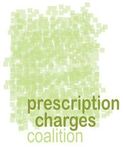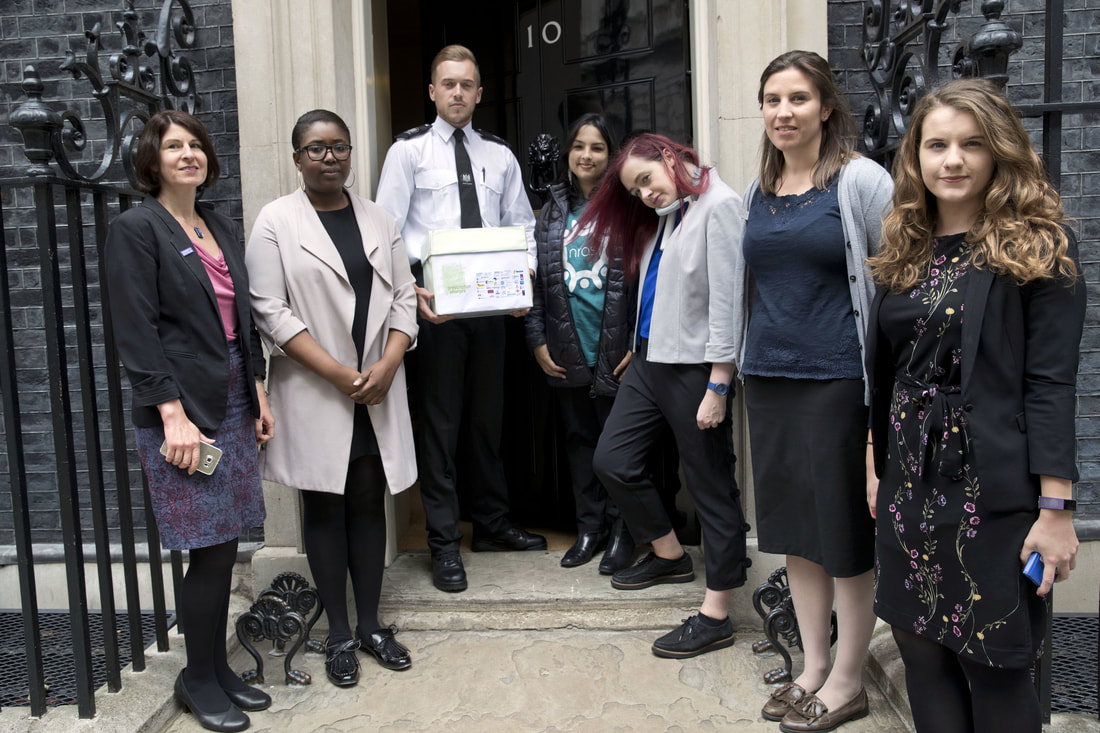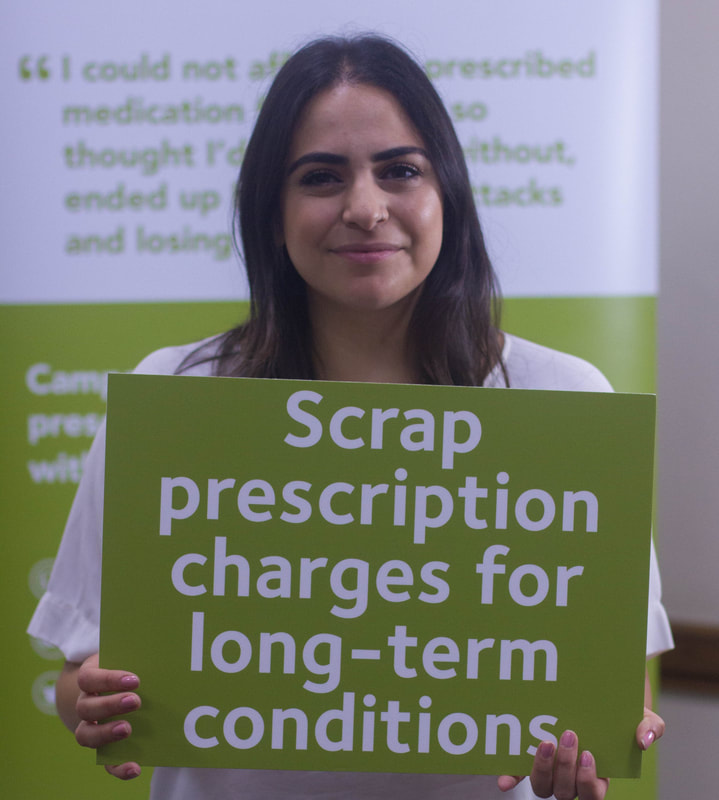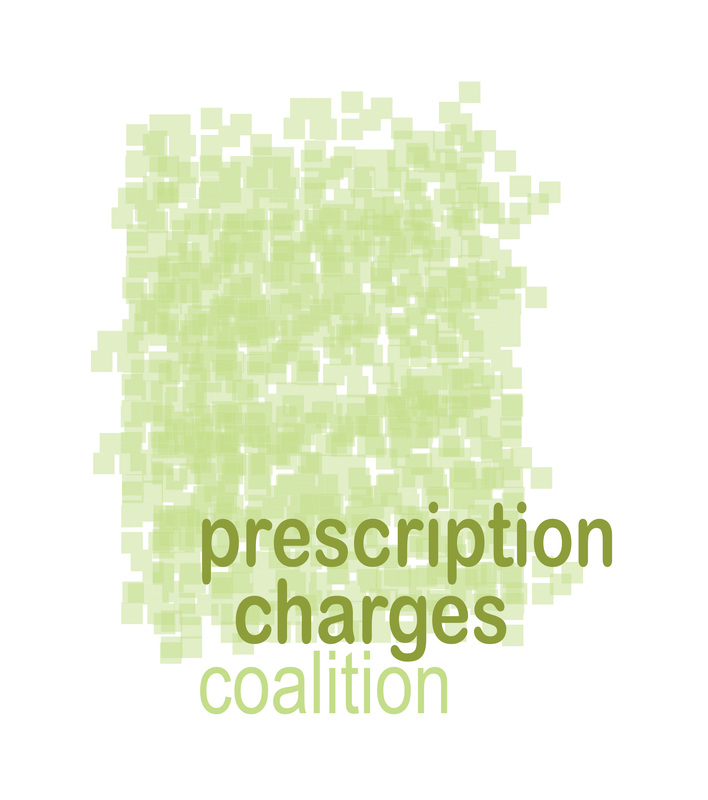|
This week we met with Rachael Maskell MP, a member of the Commons Health and Social Care Committee. Rachael met with us on behalf of the new Chair of the Committee, Steve Brine MP. During the meeting, we were joined by Dr Aaron Brown who is a GP living with cystic fibrosis. He shared his thoughts about prescription charges for people with long-term conditions. We discussed our call for a review of the outdated prescription charge exemption list and explored how the committee could amplify our voice. This is part of the Coalition’s wider work to increase the profile of our campaigning to scrap the charge for all people with long-term conditions. At the meeting we shared stories of those who are choosing between missing their medication or buying everyday essentials. We stressed the inherent unfairness of the exemption list which leaves many people with long-term conditions in England paying for their medicines to stay alive and well. We look forward to continuing to work with Rachael and the committee in the New Year. Grace PagetI am a Public Affairs Officer at the Cystic Fibrosis Trust and have been involved with the Coalition for the last year.
0 Comments
The last few months have seen a lot of debate about the spiralling cost of living. This post shares some of the work the Coalition has been doing to keep prescription charges on the UK government's agenda.
Some people with long-term health conditions have told us that paying for their medicines is causing them sleepless nights.
While we welcomed the charge being frozen earlier in the year we know it's still a steep price to pay to stay healthy. Jade, who lives with Cystic Fibrosis shared her experience with us: "The year I turned 19, I was in my first year at university. I had just about found my feet, managing my complex and exhausting chronic health condition independently for the first time in my life, whilst also studying full-time. The day my friendly campus pharmacist told me that he would have to start charging me for my prescriptions, his voice quiet and his eyes unable to meet mine, it felt like I was being punished with yet another hurdle. That day, I left without my essential medications and I went home in tears. "Everywhere I go, people are shocked and incredulous that I have to pay for my prescriptions. Friends, strangers, even healthcare providers – everyone can see the injustice. The cost of an annual £108.10 pre-payment certificate feels like a kick in the teeth, like I’m paying to stay alive. "It’s only right that the outdated exemption rules are reconsidered, to acknowledge that people with Cystic Fibrosis are now living into their 40s, 50s and beyond." Coalition activities In May the Coalition wrote to Jeremy Hunt, the Chair of the Health and Social Care Committee asking him to support our calls for the UK government to review the prescription charges exemption list. The list hasn't been comprehensively reviewed since its introduction in 1968, apart from the addition of cancer in 2009. In June supporters from Coalition member organisations shared their stories on Twitter urging Jeremy Hunt to investigate the charge. This additional pressure has helped to secure a meeting with him in September. As we prepare for the meeting we're keen to gather examples of how the charge has affected you - please send your story into our email [email protected] We're also working with campaign group 38 degrees to understand whether their supporters have been able to get their medicine as the cost of living rises. And we plan to share this short survey on this site, so we can capture your experiences too. The Department of Health and Social Care have confirmed that prescription charges will not rise in 2022.
We are pleased as we know people with long term conditions are struggling to afford their vital medication, with the rising cost of living. That's why we're calling on the UK Government to review the list and scrap the charge. Media coverage Our comment was picked up by The Daily Express. Pharmacy organisations who are members of the Coalition shared examples of how damaging the charge is, as patients make tough decision about what medications they leave behind, because they simply can't afford them. A Coalition spokesperson said: “We welcome the decision to freeze prescription charges this year, however the English Government still lags behind their Scottish, Welsh and Northern Irish counterparts in recognising that this charge is a false economy and must be scrapped entirely. “Despite the freeze, the cost of living continues to spiral, so pharmacists are seeing an increase in the number of people asking which items they could leave behind and live without, simply because they can not afford them. “It’s entirely unfair that the UK Government is putting this unnecessary pressure on pharmacists to have to provide counsel on which of these vital medications should be prioritised by the patient. That is not their job and it’s seldom a simple answer. “When people miss or delay taking essential medication, their condition deteriorates and they are more likely to rely on NHS services more, or even end up in hospital. “These are entirely avoidable admissions which cost the NHS millions, and can have damaging consequences for the patient. “We have recently seen that the UK Government is willing to make changes to how HRT is charged, but now it's time to make healthcare equitable for all.” The current system of prescription charges in England affects the most vulnerable people in society and makes the health inequality in this country worse. At the NPA, it’s been our longstanding position that people should not be denied access to prescription medicines on the basis of their ability to pay. As pharmacists, we understand the healing power of medicines. We also know from first-hand experience that people on low fixed incomes who do not qualify for exemption suffer greatly from the current system. From a pharmacist’s point of view, processing prescription levies is a task which adds workload but has no patient benefit. We are health care professionals and have no interest in being tax collectors! We also believe there would be little return on investment to the NHS from proposals to aligning the upper age for NHS prescription charges at 65 years old, due to the various operational costs. It could also lead to indirect cost to the NHS as people’s health suffers from making a reluctant choice not to take their medicines as prescribed. All prescriptions should be exempt from charges regardless of age or medical condition, as is the case in Scotland, Wales and Northern Ireland. Far more value for money can be achieved in the drugs budget by reducing waste and improving medicines use, for example through the NHS New Medicines Service, which has recently been expanded to include Parkinson’s, heart failure and stroke. Pharmacists, like other health care professionals, experience great pressures on their time and they want to spend it with patients, not with paperwork associated with prescription charges. The National Pharmacy Association is glad to be part of the prescription charges coalition, seeking reform of this outdated, illogical and unfair system. Helga MangionHelga is Policy Manager at The National Pharmacy Association. We welcome the government's proposal that people needing HRT prescriptions will only need to pay once a year for their medication, and call on the Government to ensure this change also applies to men affected by Klinefelter syndrome (KS/XXY). This will significantly reduce the cost a person needing the medication will face, by up to £200 per year.
We pay tribute to Carolyn Harris MP for tabling the Menopause, Support and Services Bill as she has shone a spotlight on the unfairness of people getting vital medication for free in all other UK nations. We also thank all MPs who supported the debate and shared their experiences. But thousands of people with other long term health conditions are still facing rising costs to simply live well and manage their condition. This is unjust and risks burdening our NHS, as medication remains unaffordable. Now is the time for the Government to overhaul the outdated prescription charges exemption list. The UK Government are consulting on aligning the prescription charge with the State Pension Age. This would mean that people in England would need to pay for their prescriptions until they're at least 66 initially and this would rise as the State Pension Age does.
We are opposed to this proposal as we don't believe the impact of it has been properly assessed for:
Earlier this week the UK government announced they would increase prescription charges in England on 1 April 2021.
We will continue to campaign for the government to review the exemption list and scrap the charge for people with long-term conditions. Laura, who chairs the Coalition shares what activities we've been doing this year2020 has been a challenging year for everyone. As a Coalition we've come together several times to discuss and agree activities we could undertake to raise the profile of prescription charges and get the UK Government to commit to reviewing the exemption list. The recent coverage of the NHS clampdown on “prescription fraud” coincided with the anniversary of my daughter’s death. Emma had mitochondrial disease. It’s progressive and currently there is no treatment and no cure. There are only drugs to manage your symptoms and, with hope, prolong your life. Emma became ill at 21, at a time when the world should have been at her feet. She largely got her head around all that and dealt with her illness with tremendous courage, but she could not understand why she was also forced to struggle to pay for the prescriptions that were so essential to her when others were exempt. She worked reduced hours due to her illness and lived with her partner, a newly qualified nurse, so was not entitled to any help with charges. The cost and injustice were too much for her to bear. For her, the lack of exemption from prescription charges effectively invalidated her illness. It was as if the NHS was saying, ‘Other illnesses count, but yours doesn’t.’ When you support your child of any age through a serious illness, your desire to protect them grows ever stronger, at the same time your ability to do so grows weaker. When you can’t alter the big things – the illness, the prognosis, the pain your child is in – it becomes more important to try and at least change the things you can. At first, we paid for the prescriptions ourselves, but Emma didn’t want dependence on her parents as an adult, so we decided to take it upon ourselves to collect Emma’s prescriptions and reluctantly, but purposely ticked the box that said she didn’t have to pay, because it seemed the least incorrect thing to do. We wanted to be held to account, to have our day in court, to pay the fine if we had to … and to raise the profile of this injustice. We didn’t do it lightly, but couldn’t support such a system within the NHS – an NHS which we believed was about the burden of cost not falling on the long-term sick. It’s astonishing that people with cancer had to pay prescription charges for their drugs until 2009 when cancer was added to the exemptions list ... the only time it’s been adjusted in 50 years. And yet people with illnesses just as devastating still pay for their vital prescriptions drugs every single day. This is not about ‘my illness is worse than your illness’ in any way. This is about treating people fairly and equitably. I have to speak for Emma and her feelings on this because she can’t: the illness that the prescription charge exemption didn’t acknowledge killed her last September, aged just 28. Her ‘long-term illness’ has ended all too soon. The most we can hope for now is that Emma’s death will count. On Emma’s behalf, I ask you to please see how cruel and unjust it is to negate someone’s illness by not including it on the exemptions list. We need outrage. We need the same outrage for Emma – and others like her with a whole variety of horrendous illnesses – that we’d have for people with cancer in this position. Having an unfair list of conditions which are exempt from prescription charges is simply not okay. We need a review. We need change – and we need it now. Author: Christine Beal You can find out more about Emma's Mito Mission here https://www.youtube.com/watch?v=KZVu61sFH6g The petition hand in In June campaigners from Asthma UK, Crohn’s and Colitis UK, Motor Neurone Disease Association, National Rheumatoid Arthritis Society and Parkinson’s UK, took our petition to the heart of Government. Signed by almost 23,000 supporters, our petition called on the Government to scrap prescription charges for people with long-term conditions. Back in July we heard back from the Government about the petition we delivered to Downing Street. The Health Minister, Lord O’Shaughnessy, said in his letter ‘The Government has no plans for a review of the prescription charging system in England. As you know, almost 90 per cent of prescription items are free on the NHS in England, and a broad range of prescription exemptions are in place’. What is the issue? This year marks the 50th anniversary of the Medical Exemption List which is the list that determines who is eligible for free prescriptions. Except for the welcomed addition of cancer in 2009, it remains unchanged. This means that several conditions are not included either because they had not yet been discovered (such as HIV) or those affected by it were sadly not expected to live into adulthood. It remains grossly out of date. We know that many people are struggling to keep up with the costs of medicine they need to keep them well. Too many people are forced to make impossible choices between heating their home, buying food, or paying for their prescriptions. We know that this has an impact on medical adherence,33% of survey respondents told us that they have not collected their prescription due to cost. The economic case In May 2018, the York Health Economics Consortium published new findings that showed that scrapping prescription charges for just two long-term conditions (IBD and Parkinson’s) would save the NHS over £20 million a year. Savings came from:
What's next?The Government’s response is disappointing, but we are bolstered both by new evidence and your support- thousands of us will keep pressure on decision makers to revisit prescription charge exemptions. As a coalition we are working hard to keep prescription charges on the public agenda. Last week, Clinical Lead for Asthma UK, Dr. Andy Whittamore, told BBC Radio 5 live how prescription charges were barriers to people accessing life-saving medication (listen from 0:38) Support our campaign Our campaign doesn’t end with the petition hand in. You can help us by meeting with your local MP to discuss how prescription charges affect people with long-term conditions. Download our lobby pack - a complete guide with useful information and tips on meeting with your MP.
You can also keep up to date with all of our latest campaign work by signing up to our mailing list. |
ActivityHere you'll find information about the Prescription Charges Coalition's latest activities Archives
June 2024
Categories |




 RSS Feed
RSS Feed